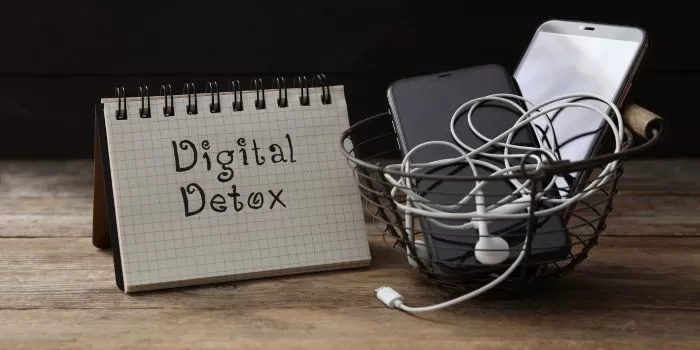Digital Detox: How Reducing Screen Time Can Improve Your Mental Health, Excessive screen time can negatively impact mental health, leading to issues such as anxiety, depression, and poor sleep. Implementing a digital detox can help restore balance and improve your overall well-being. Here’s how to reduce screen time and enhance your mental health.

1. Recognize the Impact of Screen Time
Why It Matters: Understanding how screen time affects your mental health can motivate you to make positive changes.
Key Effects:
- Increased Anxiety and Stress: Constant exposure to social media and news can lead to information overload and heightened stress levels.
- Sleep Disruption: Blue light from screens can interfere with your sleep cycle, making it harder to fall asleep and stay asleep.
- Reduced Physical Activity: Excessive screen time often leads to a sedentary lifestyle, contributing to physical health issues and lower energy levels.
2. Set Screen Time Limits
Why It Matters: Limiting screen time can help you regain control over your digital habits and create more time for other activities.
How to Do It:
- Use Built-In Tools: Utilize screen time tracking features on your devices to monitor and limit usage.
- Create a Schedule: Designate specific times for using screens and stick to a daily or weekly schedule.
- Take Regular Breaks: Implement the 20-20-20 rule: every 20 minutes, take a 20-second break to look at something 20 feet away to reduce eye strain.
READMORE: Mindfulness and Mental Health: Practical Tips for Everyday Life
3. Establish Tech-Free Zones and Times
Why It Matters: Creating boundaries for screen use can help reduce its impact on your mental health.
How to Do It:
- Tech-Free Zones: Designate certain areas of your home, such as the bedroom and dining area, as tech-free zones to encourage more meaningful interactions and better sleep.
- Tech-Free Times: Set specific times during the day, such as during meals and before bedtime, when screens are not allowed. Use these times for other activities like reading, exercising, or spending time with loved ones.
4. Engage in Offline Activities
Why It Matters: Engaging in offline activities can provide mental stimulation, reduce stress, and improve overall well-being.
How to Do It:
- Physical Exercise: Incorporate regular physical activity into your routine, such as walking, jogging, yoga, or team sports.
- Hobbies and Interests: Rediscover hobbies and interests that don’t involve screens, such as painting, gardening, cooking, or playing musical instruments.
- Social Interactions: Spend quality time with friends and family in person, engaging in meaningful conversations and activities.
5. Practice Mindfulness and Relaxation Techniques
Why It Matters: Mindfulness and relaxation can help reduce the urge to use screens and improve mental health.
How to Do It:
- Mindful Breathing: Practice deep breathing exercises to calm your mind and reduce stress.
- Meditation: Set aside time each day for meditation to improve focus and reduce anxiety.
- Progressive Muscle Relaxation: Use progressive muscle relaxation techniques to release physical tension and promote relaxation.
Conclusion
Implementing a digital detox by reducing screen time and engaging in offline activities can significantly improve your mental health. Recognize the impact of excessive screen use, set screen time limits, establish tech-free zones and times, engage in offline activities, and practice mindfulness and relaxation techniques. These strategies can help you create a healthier balance between your digital and real-life experiences, enhancing your overall well-being.
